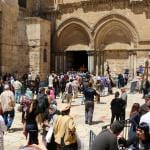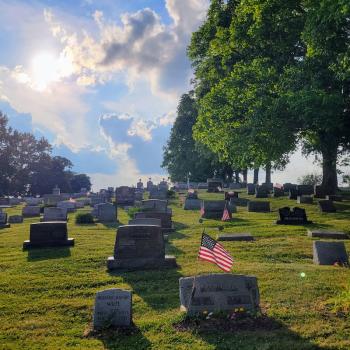If the problem is clericalism, what is the solution? It is axiomatic that vices cannot simply be eliminated—they have to be replaced with something better, or else they will just come back, often in a form that is even worse. (Cf. Mt. 12:44-45) So it is a bit worrisome that when Pope Francis frequently mentions the problem of clericalism, he doesn’t mention what will replace it. He is far from alone.

Clericalism is the view that the knowledge, the action, the holiness of the Church resides primarily among the clergy. We laity are always sheep following the clerical shepherds. We are always children obeying the Fathers. Our role is to pray, pay, and obey.
This position of authority is often abused by the clergy. Not always or even usually in the form of sexual abuse or other direct abuse of parishioners, though certainly, no matter how rare, this is evil and extremely destructive to the whole Church. More often, the power simply goes to their heads. They act as an entitled class, expecting a comfortable life, control over whomever and whatever they choose in the life of the parish, seeking promotion and titles, etc. They see no need to listen to or learn from their parishioners. They take advantage of the complete lack of structural accountability to parishioners to do as they wish instead of being servants of all. But this is a misunderstanding of authority, as the Synod on Youth document explained. “In its etymological meaning, auctoritas indicates the capacity to cause to grow; it does not express the idea of a directive power, but of a real generative force.”
Many proposals recently aimed at counteracting clericalism have focused on surrendering trappings of clerical privilege, and/or creating structures of accountability to selected members of the laity. Others simply propose listening and “holiness” from priests. But none of these truly change the basic dynamic of clergy being the prime movers of the Church, and the laity being receivers. We hope that what we receive from the clergy will improve, but there is virtually nothing we can do about it if that doesn’t happen. The clergy are supposed to sweep out the bad, but what is going to invigorate the life of this newly austere Church? What will keep spirits even more antithetical to the Gospel from moving in?
As meeting after meeting, and scandal after scandal, pass by with precious little evidence of the clergy moving in the right direction, more and more people are despairing and leaving regular communion with the Catholic Church behind. They feel like renters with a negligent landlord; at some point staying becomes too painful and the cost of leaving a premises over which one has no ownership seems more bearable. Neither does putting the Church under new management, such as boards made up primarily of “well respected” lay people, guarantee any improvement. These chosen few may turn out to be even more controlling and self-serving than the clergy.
No, if clergy are going to return to the servanthood to which they are called, all the laity, not just a few selected by the Bishop, must take “ownership” of the life of the Church. We must claim it for ourselves, not wait for the hierarchy to gift it to us. In claiming ownership, we must also take responsibility for promoting the knowledge, action, and holiness of the whole Body of Christ.
I firmly believe that the only way to drive out clericalism is to replace it with the authority of the Holy Spirit, present and active among a myriad of diverse members of the Body of Christ. Lay leadership must consist not of favorites of the clergy, but members of the Church who have moved beyond spiritual milk and attained to the full stature of their calling. (Cf. Eph. 4:13)
This is not primarily a negative engagement, such as demanding justice for sexual abuse victims, as important as this is. The Holy Spirit alive in the laity must be a source of teaching, of social action, and of helping each other become more spiritually whole. And the persons who do these things must claim their baptismal right to utilize their charismatic gifts, rather than waiting on the clergy to commission them.
This, of course, assumes that members of the laity are able to discern their charismatic gifts first. Sadly, but unsurprisingly, few members of the clergy or even religious education directors have put much effort into teaching this to their flocks. We really must take it upon ourselves to self-educate and disciple each other in the ways of opening our hearts to the movements of the Holy Spirit.
Just as there are many charisms of the Holy Spirit, there are many different means for learning to discern and follow the guidance of the Spirit. In coming posts, I intend to survey a number of different spiritual exercises that can aid in this quest, including:
- Total Consecration to Jesus through Mary
- Charismatic prayer groups
- Ignatian Examen
- Ascetic practices and reading the Desert Fathers
While no one spiritual path is best for everyone, I do encourage everyone to explore practices outside their comfort zone. You may be surprised by the Spirit in the process! Or if you have found other means profitable in developing discernment of the Spirit, you are invited to share in the comments, and I may research more and share in a future Beyond All Telling post.
Let us take inspiration and challenge from these words from the Letter to the Hebrews:
Although you should be teachers by this time, you need to have someone teach you again the basic elements of the utterances of God. You need milk, [and] not solid food. Everyone who lives on milk lacks experience of the word of righteousness, for he is a child. But solid food is for the mature, for those whose faculties are trained by practice to discern good and evil.
Therefore, let us leave behind the basic teaching about Christ and advance to maturity, without laying the foundation all over again: repentance from dead works and faith in God, instruction about baptisms and laying on of hands, resurrection of the dead and eternal judgment. And we shall do this, if only God permits.
For it is impossible in the case of those who have once been enlightened and tasted the heavenly gift and shared in the Holy Spirit and tasted the good word of God and the powers of the age to come, and then have fallen away, to bring them to repentance again, since they are recrucifying the Son of God for themselves and holding him up to contempt.
Ground that has absorbed the rain falling upon it repeatedly and brings forth crops useful to those for whom it is cultivated receives a blessing from God. But if it produces thorns and thistles, it is rejected; it will soon be cursed and finally burned.
-Heb 5:12-6:8
And let us pray unceasingly together: “Come Holy Spirit, fill the hearts of your faithful and kindle in them the fire of your love. Send forth your Spirit and they shall be created. And You shall renew the face of the earth.”
















